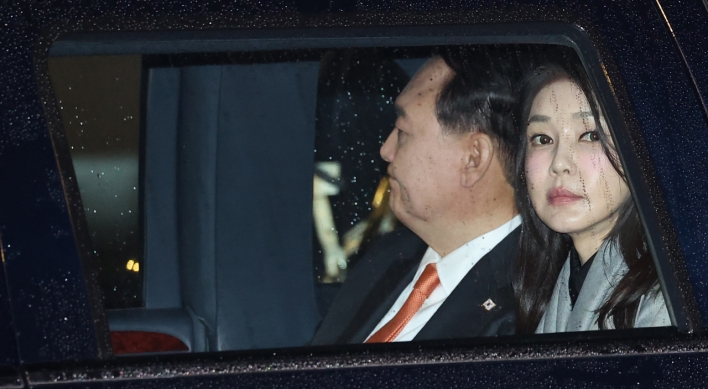For decades, South Korean film buffs thought all their country’s moviemaking from the Korean War era was lost forever. And it would have been, but for one film wrapped in a cocoon of old newspapers, tucked inside a plastic bag and placed in a dark, dusty closet.
That film, “The Street of the Sun,’’ got its first screening in six decades Tuesday, the 63rd anniversary of the beginning of the war. Now digitally restored, it offers South Koreans a rare glimpse at how their ancestors lived amid the destruction and poverty of war.
The movie was the debut feature of Min Kyoung-sik, a South Korean director who took a camera to the streets of Daegu in 1952, while a stream of refugees poured in. The southeastern city was tucked behind a perimeter secured by U.S. and South Korean forces battling North Korea and China to the north.
The film’s sentimental story of a refugee schoolteacher who becomes a surrogate father figure for street urchins attempts to teach a social lesson about wartime poverty and crime.
While fiction, it offers a look at real life in war-torn South Korea. The actors and producers had been uprooted by fighting, and many of the scenes reflect the city’s actual surroundings rather than a movie set, with non-actors in the mix.
The war started June 25, 1950, and ended in a truce a year after the film was made. The Koreas remain technically at war, separated by a heavily fortified border, and about 28,500 U.S. troops are still stationed in the South.
Min’s movie was long believed to have been destroyed or lost, along with the 13 other South Korean films made during the war, according to the Korean Film Archive, the organization behind the film’s restoration. But two decades ago, the director’s daughter-in-law, Seong Ryeong-chul, found the 62-minute, 16 mm film in a closet at her home.
Seong said in an interview that she nearly threw away the coil of negatives. “But when I raised the plastic ribbon against the light, I saw tiny images of people etched inside,’’ she said.
Even after the discovery, well over a decade passed before the Korean Film Archive became aware of the film. Seong contacted the organization in 2009, and in 2012 she granted the film to the archive for an undisclosed fee. The audio has never been found, so the film was screened Tuesday without sound. (AP)
That film, “The Street of the Sun,’’ got its first screening in six decades Tuesday, the 63rd anniversary of the beginning of the war. Now digitally restored, it offers South Koreans a rare glimpse at how their ancestors lived amid the destruction and poverty of war.
The movie was the debut feature of Min Kyoung-sik, a South Korean director who took a camera to the streets of Daegu in 1952, while a stream of refugees poured in. The southeastern city was tucked behind a perimeter secured by U.S. and South Korean forces battling North Korea and China to the north.
The film’s sentimental story of a refugee schoolteacher who becomes a surrogate father figure for street urchins attempts to teach a social lesson about wartime poverty and crime.
While fiction, it offers a look at real life in war-torn South Korea. The actors and producers had been uprooted by fighting, and many of the scenes reflect the city’s actual surroundings rather than a movie set, with non-actors in the mix.
The war started June 25, 1950, and ended in a truce a year after the film was made. The Koreas remain technically at war, separated by a heavily fortified border, and about 28,500 U.S. troops are still stationed in the South.
Min’s movie was long believed to have been destroyed or lost, along with the 13 other South Korean films made during the war, according to the Korean Film Archive, the organization behind the film’s restoration. But two decades ago, the director’s daughter-in-law, Seong Ryeong-chul, found the 62-minute, 16 mm film in a closet at her home.
Seong said in an interview that she nearly threw away the coil of negatives. “But when I raised the plastic ribbon against the light, I saw tiny images of people etched inside,’’ she said.
Even after the discovery, well over a decade passed before the Korean Film Archive became aware of the film. Seong contacted the organization in 2009, and in 2012 she granted the film to the archive for an undisclosed fee. The audio has never been found, so the film was screened Tuesday without sound. (AP)
-
Articles by Korea Herald



![[AtoZ Korean Mind] Does your job define who you are? Should it?](http://res.heraldm.com/phpwas/restmb_idxmake.php?idx=644&simg=/content/image/2024/05/06/20240506050099_0.jpg&u=)















![[K-pop's dilemma] Is Hybe-Ador conflict a case of growing pains?](http://res.heraldm.com/phpwas/restmb_idxmake.php?idx=642&simg=/content/image/2024/05/07/20240507050746_0.jpg&u=)